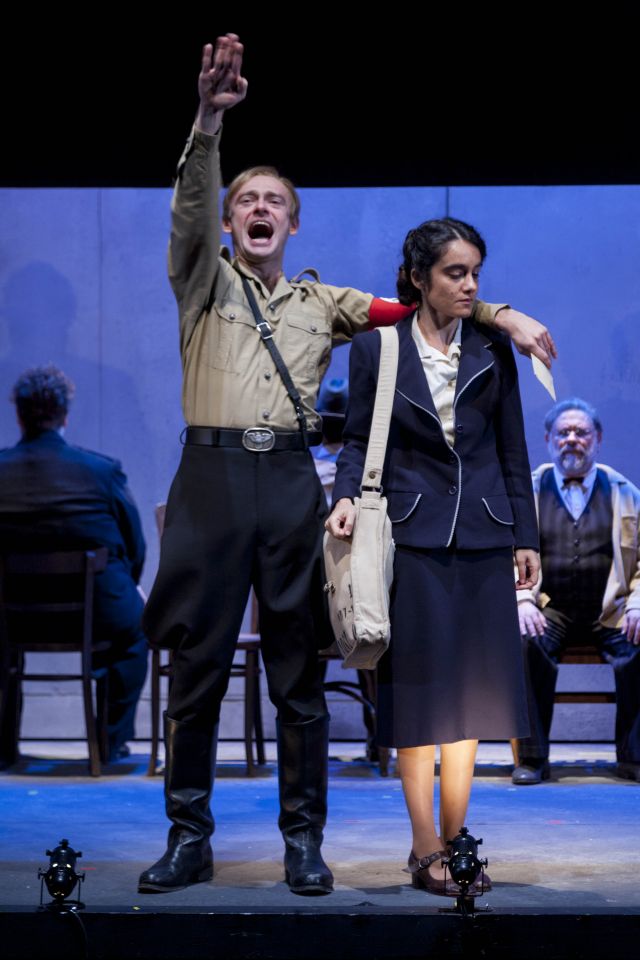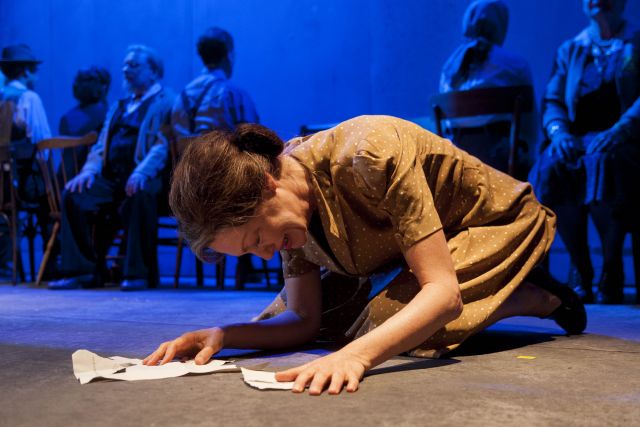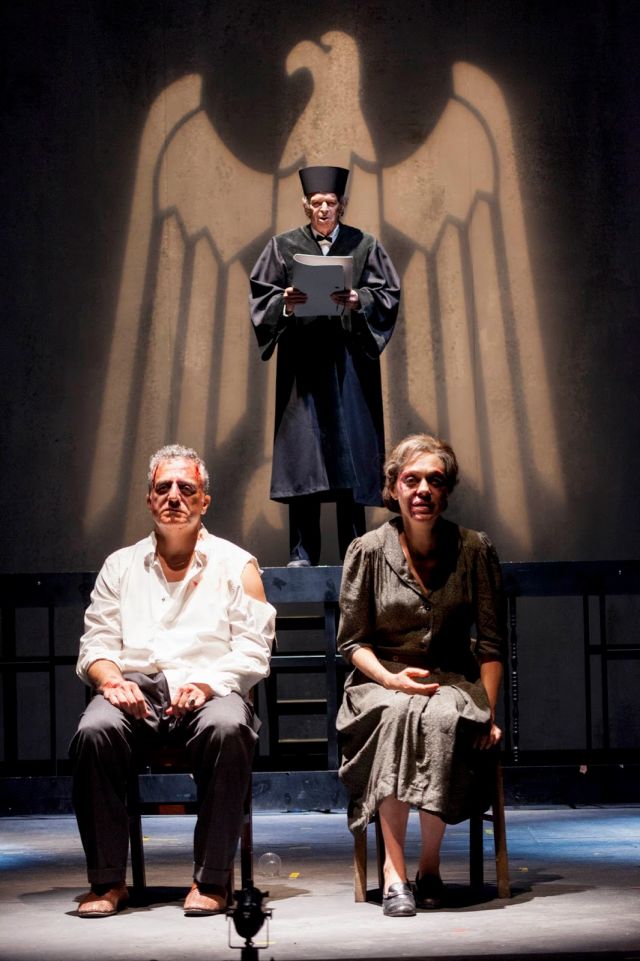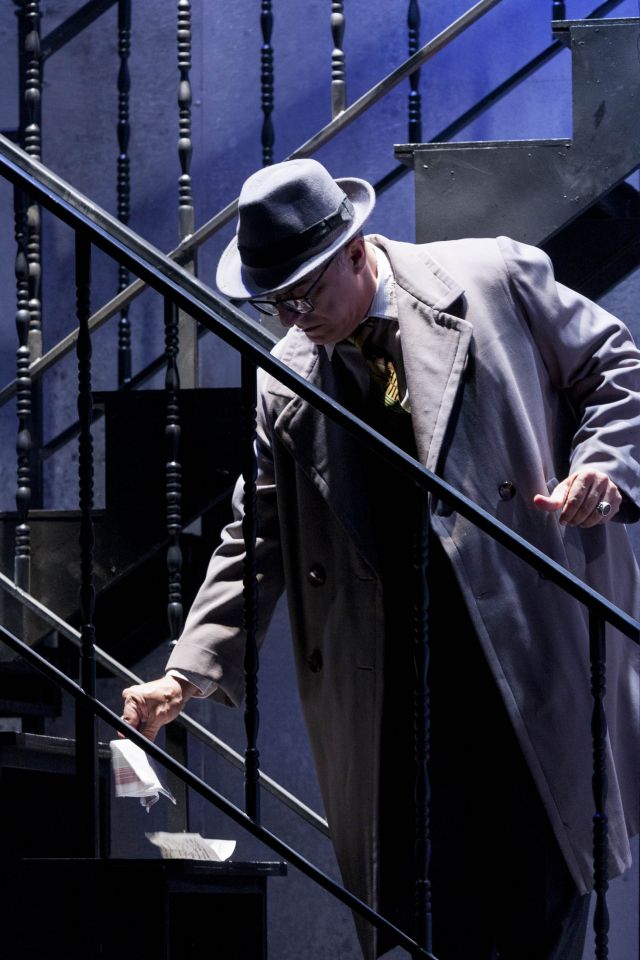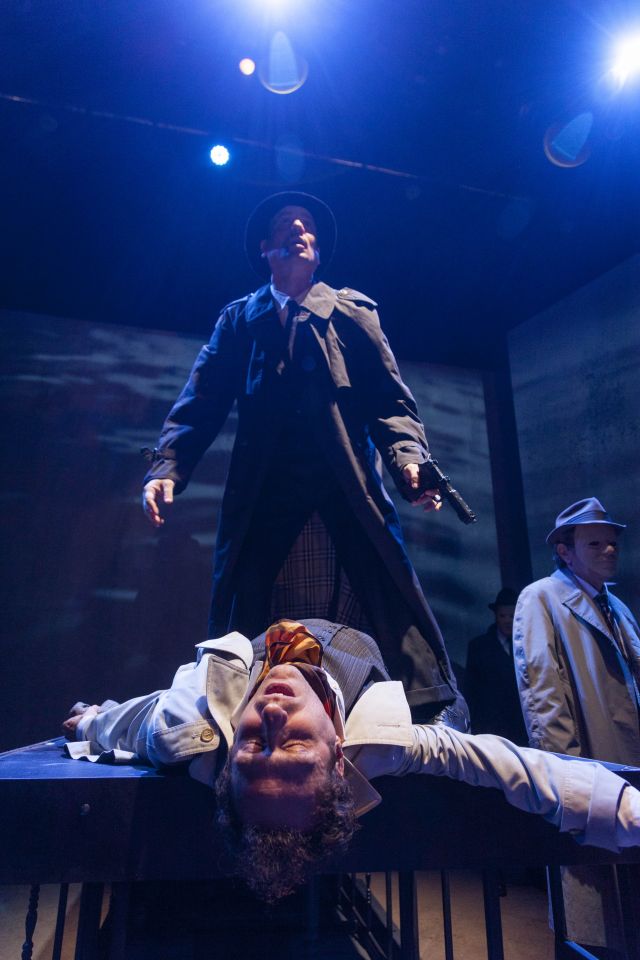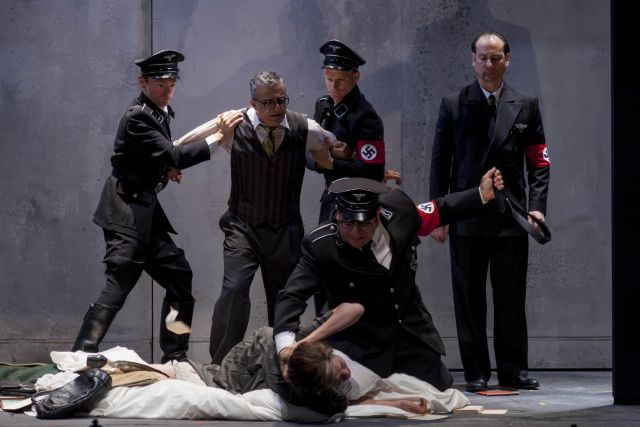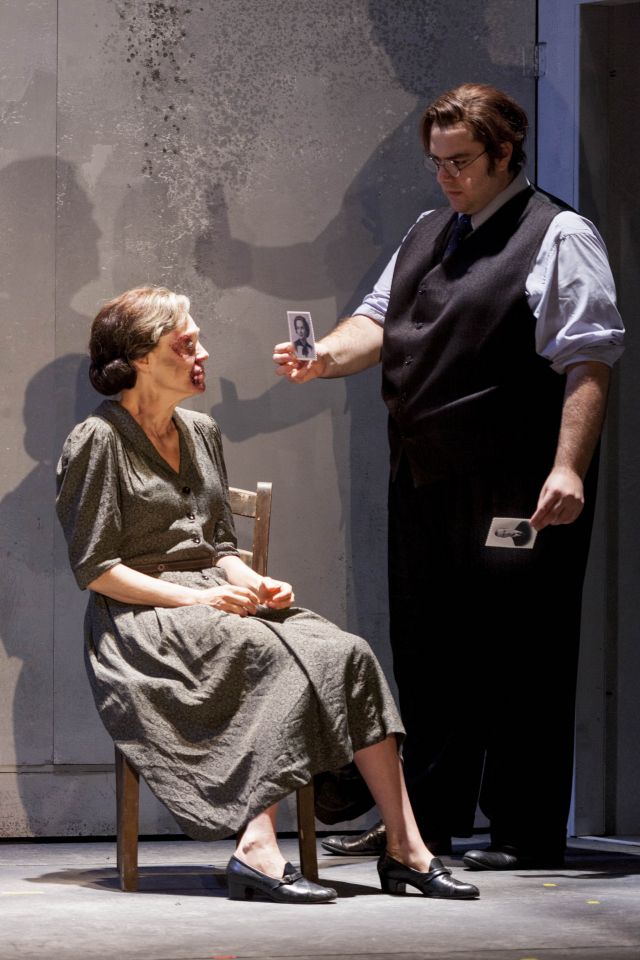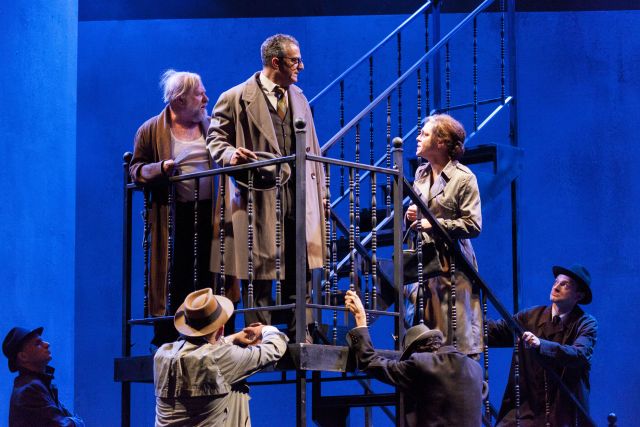Skip to main content
Jeder stirbt für sich allein
Jeder stirbt für sich allein (Alone in Berlin) is based on the true story of Elise and Otto Hampel, a working-class couple living in Berlin, who hadn’t been politically active. After their child Otto ...
Jeder stirbt für sich allein (Alone in Berlin) is based on the true story of Elise and Otto Hampel, a working-class couple living in Berlin, who hadn’t been politically active. After their child Otto had been killed at the beginning of the war, the couple began a propaganda campaign that continued almost three years, embarrassing and annoying the Berlin police, who eventually transferred the case to the Gestapo. The campaign of the couple, who is named Quangel in Fallada’s version, involved distributing hundreds of postcards throughout Berlin, in which they calling for civil disobedience and sabotage in the workplace. They urged their readers not to contribute to a Nazi charity, which was disguised as a winter aid enterprise and actually financed the war. Does this count as opposition to the regime? Can this act be compared to the attempted assassination of Hitler on July 20, 1944? Where is the line between opposition to the regime and consent? Together with the Israeli German Festival, Gorki invites Ilan Ronen and Habimah Theatre to Berlin with it's current production, in order to remember the connections and histories of both theaters and cities and to reconnect them.
Ein Gastspiel des Habimah Theaters Tel Aviv in Kooperation mit dem ID Festival, gefördert durch die Beauftragte für Kultur und Medien
Mit Shulamit Adar, Uri Avrahami, Osnat Fishman, Noam Frank, Davit Gavish, Lea Gelfenstein, Uri Hochman, Norman Issa, Rotem Keynan, Pini Kidron,Michael Koresh, Alex Krull, Rinat Matatov, Tomer Sharon, Ami Smolarchik, Ben Yosipovitch
After the novel by
Hans Fallada
Directed by
Ilan Ronen


